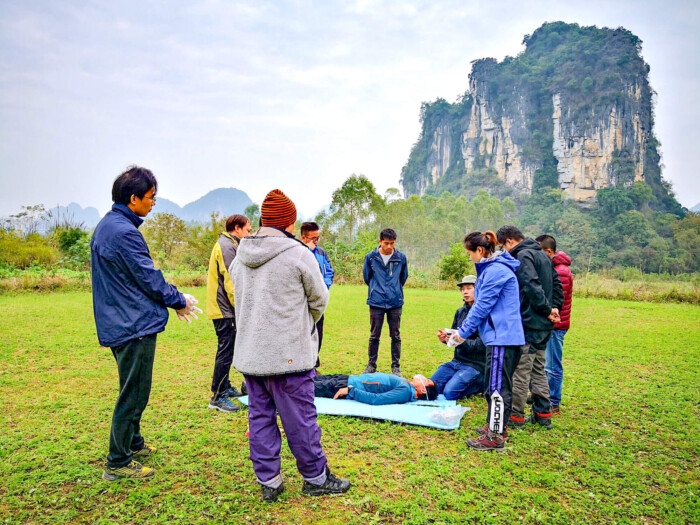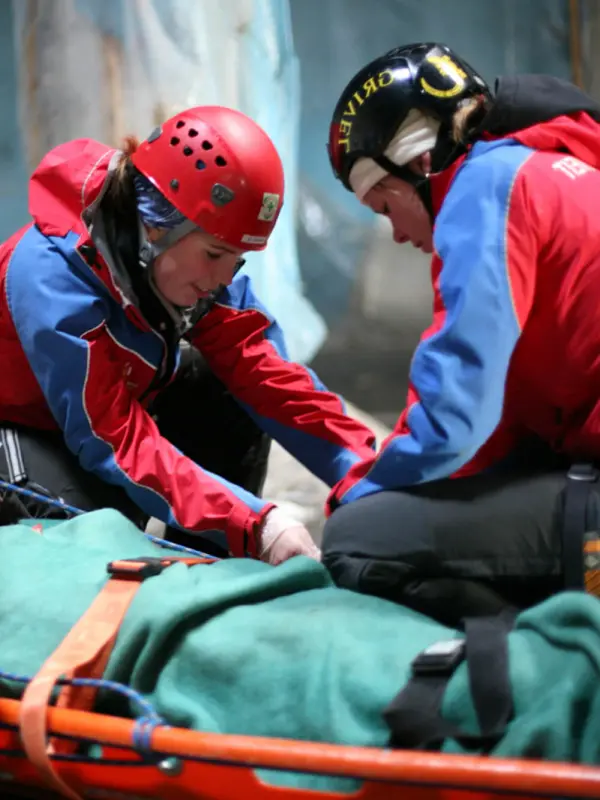Travel Medicine First Responder
- Minimum Duration
- 70 Hours
- Minimum Age
- 16
- Minimum Cost
- $600+
- Skill Level
- Any

Description
This course encompasses the scope and benefits of our WFR course with an additional emphasis on travel and tropical disease exposure, prevention and response, international resources, and evacuation and treatment decision-making at an international level.
Requirements
Prior to enrolling, please review our Functional Position Description. The criteria in this policy allow students to self-assess their ability to meet the demands of a WMA International course as well as the demands of a certified wilderness medical provider in the field.
Evaluation
This course is pass/fail. 100% attendance is mandatory. Evaluation is based on practical patient simulations, hands-on activities, and a written test. WMA International is committed to making reasonable accommodation for any student with special needs.
Recertification
Certifications are valid for three years. Graduates of this course may re-certify by taking a Wilderness First Responder Recertification course, a Bridge (WAFA to WFR) course, or by retaking this course.
Course Topics
This course covers the scope of a Wilderness First Responder course with emphasis on:
- The general principles of wilderness and rescue medicine with an emphasis on the prevention and identification of medical emergencies, critical thinking, and risk management.
- Patient assessment and emergency care including CPR and AED use, basic life support skills, and the patient assessment system.
- Environmental medicine focused on the most relevant topics related to altitude illness, hypothermia and heat related illness, freezing and non-freezing cold injuries, lightning, submersion, and environmental toxins.
- Backcountry medicine including the assessment and treatment of common medical problems. Emphasis on pathways of disease, preventative strategies, i.e., vaccinations. chemoprophylaxis, maintaining a healthy immune system, etc.
- Treatment of stable and unstable injuries from traumatic mechanisms, spine stabilization, and treatment of musculoskeletal problems such as overuse syndromes, and dislocations.
- International emphasis on epidemiology and hazard assessment in developing countries, toxins, bites and stings, and medical facility assessment, evacuation decisions, medical kit preparation, and international medical/legal considerations.
- Skills Labs focused on hemorrhage control, wound cleaning and debridement (including open fractures, burns, and blisters), bandaging, splinting, spine stable patient packaging, hypothermia management, etc.
- WMA International Wilderness Protocols including treatment of anaphylaxis, wound management, CPR in a remote setting, spine injury assessment, reduction of simple dislocations, and treatment for severe asthma.
Course Topics
This course covers the scope of a Wilderness First Responder course with emphasis on:
- The general principles of wilderness and rescue medicine with an emphasis on the prevention and identification of medical emergencies, critical thinking, and risk management.
- Patient assessment and emergency care including CPR and AED use, basic life support skills, and the patient assessment system.
- Environmental medicine focused on the most relevant topics related to altitude illness, hypothermia and heat related illness, freezing and non-freezing cold injuries, lightning, submersion, and environmental toxins.
- Backcountry medicine including the assessment and treatment of common medical problems. Emphasis on pathways of disease, preventative strategies, i.e., vaccinations. chemoprophylaxis, maintaining a healthy immune system, etc.
- Treatment of stable and unstable injuries from traumatic mechanisms, spine stabilization, and treatment of musculoskeletal problems such as overuse syndromes, and dislocations.
- International emphasis on epidemiology and hazard assessment in developing countries, toxins, bites and stings, and medical facility assessment, evacuation decisions, medical kit preparation, and international medical/legal considerations.
- Skills Labs focused on hemorrhage control, wound cleaning and debridement (including open fractures, burns, and blisters), bandaging, splinting, spine stable patient packaging, hypothermia management, etc.
- WMA International Wilderness Protocols including treatment of anaphylaxis, wound management, CPR in a remote setting, spine injury assessment, reduction of simple dislocations, and treatment for severe asthma.
